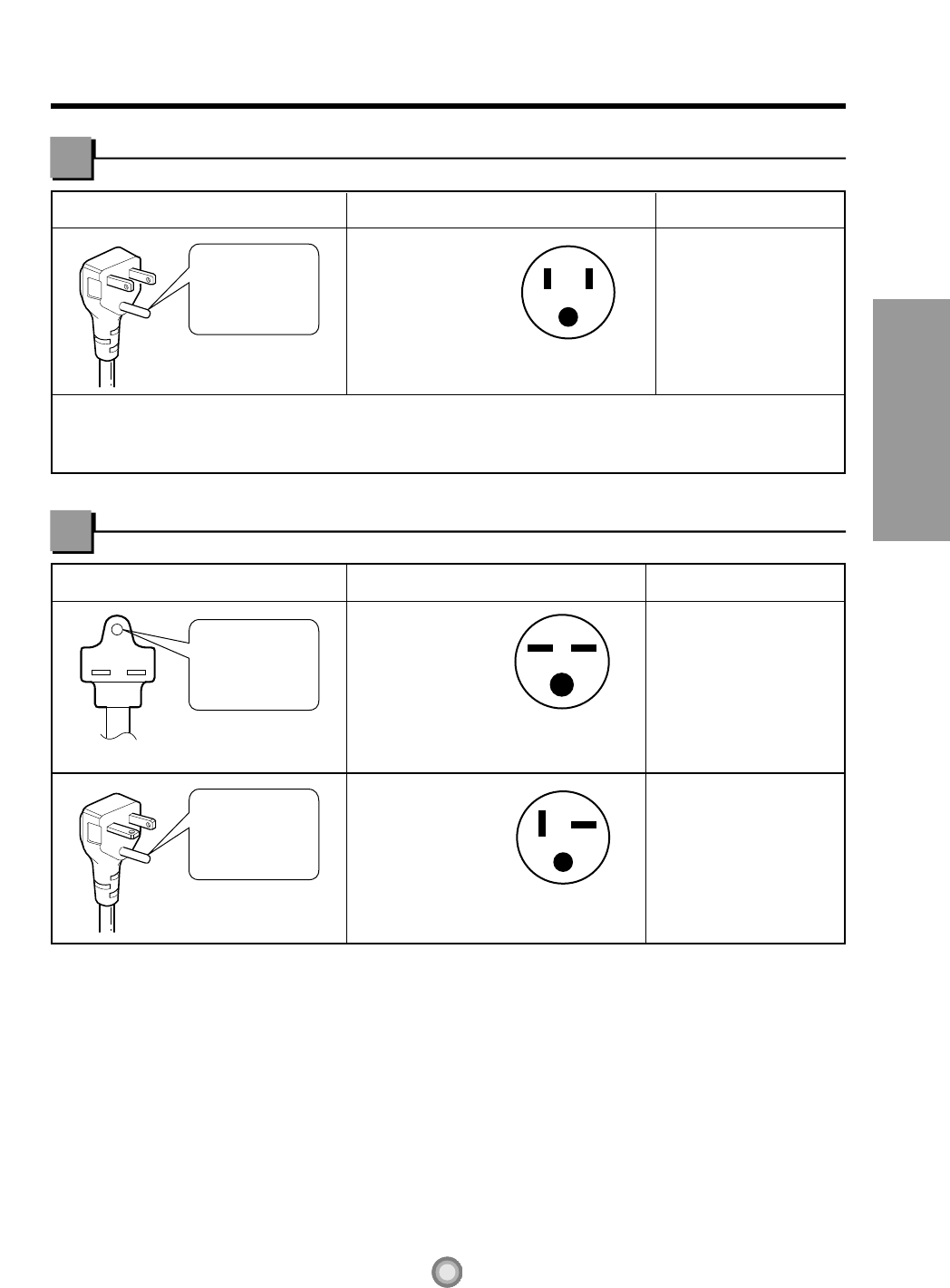
5
Electrical Data
Do not under any
circumstances cut
or remove the
grounding prong
from the plug.
Line Cord Plug Use Wall Receptacle Power Supply
Line Cord Plug Use Wall Receptacle Power Supply
Power supply cord with
3-prong grounding plug
Do not under any
circumstances cut
or remove the
grounding prong
from the plug.
Power supply cord with
3-prong grounding plug
Standard 125V, 3-wire grounding
receptacle rated 15A, 125V AC
Parallel
type
Tandem
type
Perpendicular
type
Standard 250V, 3-wire grounding
receptacle rated 15A, 250V AC
Use 15 AMP time
delay fuse or 15 AMP
circuit breaker.
Use 15 AMP
time delay fuse or
circuit breaker.
Use 20 AMP
time delay fuse or
circuit breaker.
Refer to the nameplate
for correct fusing.
Do not under any
circumstances cut
or remove the
grounding prong
from the plug.
Power supply cord with
3-prong grounding plug
Standard 250V, 3-wire grounding
receptacle rated 20A, 250V AC
Electrical Data
USE OF EXTENSION CORDS
Because of potential safety hazards, we strongly discourage the use of an extension cord. However, if you wish to
use an extension cord, use a CSA certified/UL-listed 3-wire (grounding) extension cord, rated 15A, 125V.
Electrical Data(For 115V model)
Electrical Data(For 230/208V model)
■
ELECTRICAL SAFETY
All wiring should be made in accordance with local electrical codes and regulations.
NOTE :
Aluminum house wiring may pose special problems. Consult a qualified electrician.
IMPORTANT GROUNDING INSTRUCTIONS
Air conditioner has a three-prong grounding plug
on its power supply cord, which must be plugged
into properly grounded three-prong wall
receptacle for your protection against possible
shock hazard.
FUSE – Use a time-delay fuse or circuit breaker.
Refer to the nameplate for proper power supply
requirements.
208, 230, and 208/230 VOLT UNITS
These units are equipped with a three-prong
grounding plug on the power supply cord, which
must be plugged into a matching properly
grounded three-prong wall receptacle for your
protection against possible shock hazard. If such
an outlet is not present, one must be installed by a
qualified electrician in accordance with the National
Electrical Code and local codes and ordinances.
NOTE: DO NOT USE AN EXTENSION CORD
ON 208, 230, AND 208/230 VOLT UNITS.

















